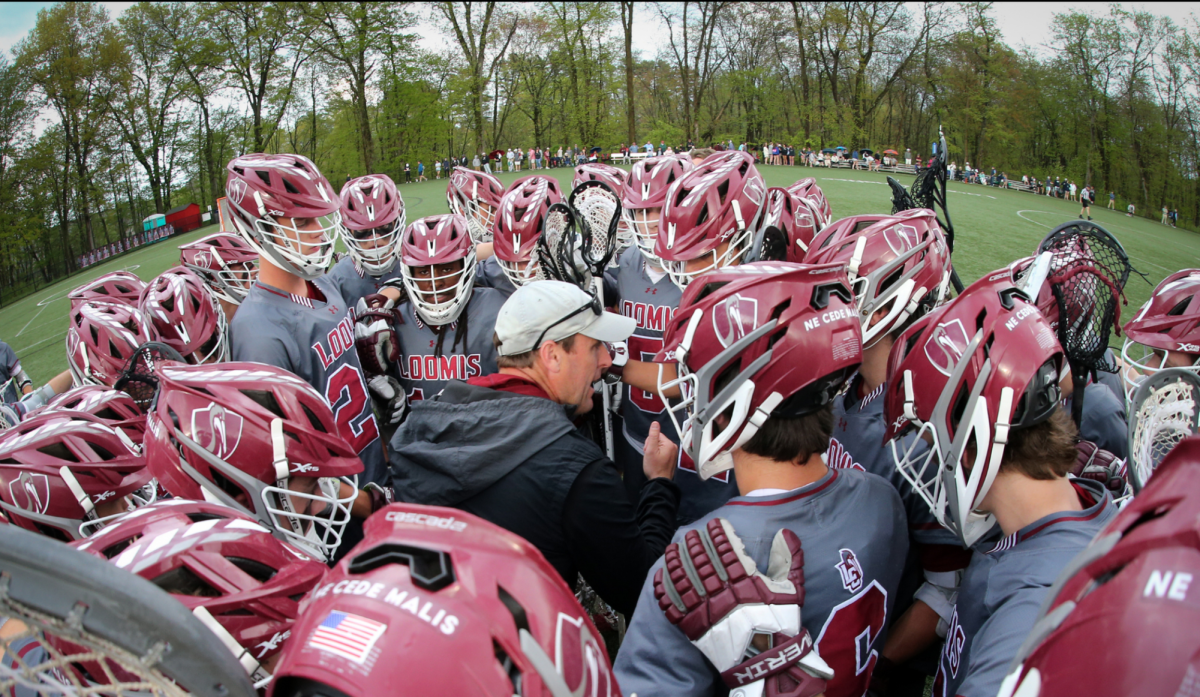Coronavirus Restrictions for LC Students Around the World
Customers wait outside a Home Depot in Houston TX, on May 2, 2020.
May 4, 2020
In an attempt to protect their inhabitants from the threat of the novel coronavirus and to help “flatten the curve,” most countries around the world established stringent regulations. However, as the weeks have progressed, many states, countries, and provinces are approaching their reopening dates while others have already begun to ease back into a normal schedule.
North America seems to have been hit the hardest because of the United States’ high number of cases, while its neighbor Canada has managed to contain the virus relatively well and has been able to slow the spread. At just over 60,700 cases, Canada’s control of COVID-19 is a stark contrast to the situation in the United States, which reported 1.21 million reported cases as of May 4.
Log Features Editor Kelly Xue ’21—currently staying in Ontario, Canada—reports that successful communication from the government has helped to spread awareness among Canadians partly contributing to Canada’s lower infection rate.
“People have generally been respectful of the measures implemented. In areas that normally have higher concentrations of people, there are police officers to enforce social distancing measures,” Kelly said.
Despite the country’s relative success, like many other countries, the Canadian economy has been hit hard at this time. In spite of the potential dangers economy-boosting attempts might hold for Canadians, the government is making moves to provide some semblance of financial security for the country and its citizens.
“In an effort to boost the economy, a number of non-essential businesses will be allowed to reopen in the upcoming days,” Kelly said.
In spite of these uncertain times, residents in Ontario have been able to get out of their houses for fresh air due to the country’s tolerant coronavirus policies.
“The measures in Ontario have not been overly stringent, so I have been able to go for walks and retain some degree of normalcy,” Kelly added.
Alan Abdrazakov ’21 from Kazakhstan is going through a less lenient quarantine life experience than Kelly. Alan explains that because he lives in a densely populated area, his family and others like them in urban Kazakhstan are given harsher regulations than some other regions. The measures with the biggest impact on him have been those restricting interactions with other people.
Regardless of these measures some people still venture outside and some businesses have remained open.
“From what I’ve heard going on inside my town, people have been taking precautions but still managed to convene outside. Even some businesses and markets stayed open during this time,” Alan said.
Likewise, Daniel Graham ’21 reflects from his house in Terre Haute, Indiana, on the cautious yet unworried feelings of the more rural Midwest as some people still go about their daily business.
“Only about one third [of people] are wearing masks. Some businesses require masks, but most do not,” Daniel said.
For the most part, Daniel’s experience is much like that of others living in rural America. With fewer direct threats due to lower population density and fewer cases, areas like these often have people being less cautious in the face of the virus.
In contrast, some sparsely populated states like Alaska still have relatively rigid regulations despite having low populations and a low number of cases. Ailin Chinn ’23 from Anchorage, Alaska finds that although the state has implemented measures closing businesses like restaurants and theaters, they have also made strides to help Alaskans.
“My city has made all [paper and plastic] bags at grocery stores free,” Ailin said.
While locals like Ailin miss public places and the freedom of eating out at restaurants, these measures are set to end soon due to their low number of cases and deaths.
“My state hasn’t had many cases or deaths, and most of the people who have had Corona in Alaska have already recovered,” Ailin said.
Although many other states are also planning on beginning to reopen soon within the US, governmental leaders continue to keep in mind the deadly repercussions of prematurely removing restrictions. Because of its isolated position, Alaska has been allowed more freedom than other US states.
In Lagos, Nigeria, Biani Ebie ’21 has found the country’s strict coronavirus regulations to have greatly impacted her normal way of life.
“The lockdown regulations overall have really impacted me because it prevents me from going anywhere, except like grocery stores for essentials…I wear a mask when I go out in public and when I go out jogging,” Biani said.
Due to different infection rates across the Nigerian states, Biani’s experience is not the same as everybody else living in Nigeria.
“Since the state that I am in has the third most cases in the country, there are more protective measures [in place],” Biani added.
Much like many other countries around the world, Nigeria is looking to ramp its economy back up. Starting on Monday, May 4, the lockdown is scheduled to be loosened, but interstate travel will continue to be restricted and the nationwide curfew will remain in place.
Cautious but hopeful measures like those taking place in Nigeria on Monday are being emulated worldwide in the coming days and weeks as governments attempt to maintain the delicate balance between protecting their citizens and sustaining a healthy economy.









